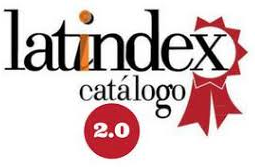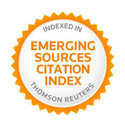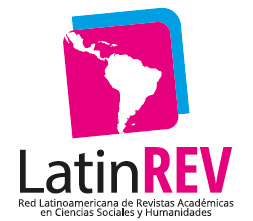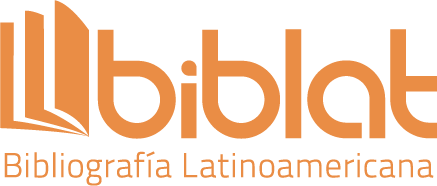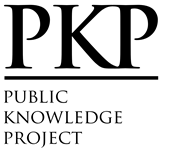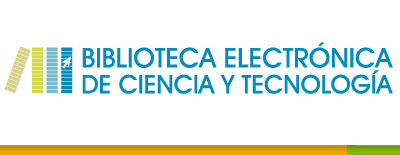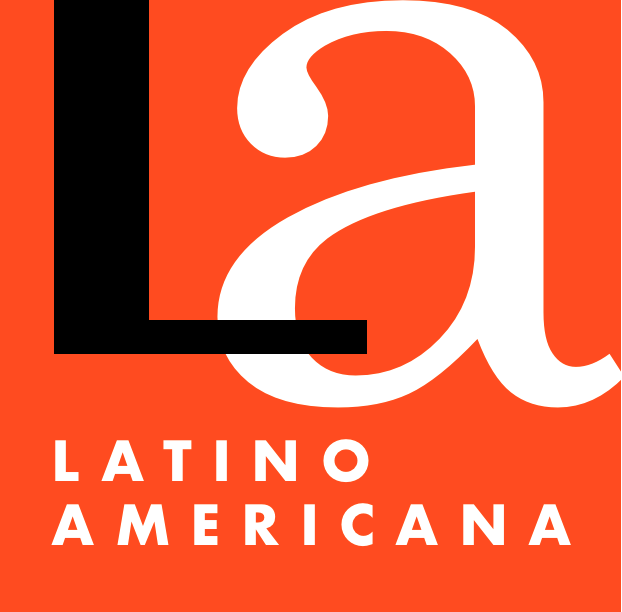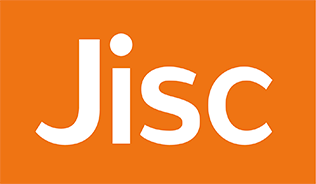Percepciones de estudiantes latinoamericanos sobre el uso de la inteligencia artificial en la educación superior
Resumen
La inteligencia artificial (IA) es una tecnología cada vez más relevante en el ámbito académico, especialmente por sus implicaciones en el proceso de enseñanza aprendizaje. Esta investigación analiza los hallazgos de un estudio realizado en tres países latinoamericanos: Ecuador, Perú y México en donde se aplicó un instrumento cuantitativo ad hoc a 423 estudiantes de pregrado de tres universidades. El objetivo fue conocer la percepción de los estudiantes sobre el uso de la Inteligencia Artificial en la educación superior. Los resultados reflejan un reconocimiento significativo del potencial de la IA para mejorar la calidad educativa y personalizar el proceso de aprendizaje. Además, enfatizan la importancia de un enfoque inclusivo y equitativo en la implementación de la IA en la educación superior, promoviendo un ambiente educativo accesible para todos y garantizando que la tecnología se integre de manera ética y efectiva para potenciar la calidad y la personalización del proceso educativo.
Descargas
Citas
Ahmad, S.F., Han, H., Alam, M.M., Rehmat, M.K., Irshad, M., Arraño-Muñoz, M., & Ariza-Montes, A. (2023). Impact of artificial intelligence on human loss in decision making, laziness and safety in education. Humanities and Social Sciences Communincation, 10, 311. https://doi.org/10.1057/s41599-023-01787-8.
Aparicio-Gómez, W. O. (2023). La Inteligencia Artificial y su Incidencia en la Educación: Transformando el Aprendizaje para el Siglo XXI. Revista Internacional De Pedagogía E Innovación Educativa, 3(2), 217–229. https://doi.org/10.51660/ripie.v3i2.133.
Aljanabi, M., & ChatGPT. (2023). ChatGPT: Future Directions and Open possibilities. Mesopotamian Journal of Cyber Security, 16–17. http://dx.doi.org/10.58496/MJCS/2023/003.
Bobrytska, V., Krasylnykova, H., Beseda, N., Krasylnykov, S., & Skyrda, T. (2024). Artificial intelligence (AI) in Ukrainian Higher Education: A Comprehensive Study of Stakeholder Attitudes, Expectations and Concerns. International Journal of Learning, Teaching and Educational Research, 23(1), 400-426. https://doi.org/10.26803/ijlter.23.1.20.
Bouckaert, M. (2023). The assessment of students’ creative and critical thinking skills in higher education across OECD countries: A review of policies and related practices. OECD Education Working Papers, 293, OECD Publishing, Paris.
Bond, M., Khosravi, H., De Laat, M., Bergdahl, N, Negrea, V., Oxley, E., Pham, P., Chong, S.W. & Siemenset, G. (2024). A meta systematic review of artificial intelligence in higher education: a call for increased ethics, collaboration, and rigour. International Journal of Educational Technology in Higher Education, 21(4). https://doi.org/10.1186/s41239-023-00436-z.
Chan, C.K.Y. (2023) A comprehensive AI policy education framework for university teaching and learning. International Journal of Educational Technology in Higher Education, 20 (38), 1-25. https://doi.org/10.1186/s41239-023-00408-3.
Chauhan P. S. & Kshetri, N. (2022). The Role of Data and Artificial Intelligence in Driving Diversity, Equity, and Inclusion, Computer, 55 (4), 88-93. http://dx.doi.org/10.1109/MC.2022.3149017.
Crawford, J., Cowling, M, & Allen, K. (2023). Leadership is needed for ethical ChatGPT: Character, assessment, and learning using artificial intelligence (AI). Journal of University Teaching & Learning Practice, 20(3), 1-19. http://dx.doi.org/https://doi.org/10.53761/1.20.3.02.
Delcker, J., Heil, J., Ifenthaler, D. & Spirgi, L. (2024). First-year students AI-competence as a predictor for intended and de facto use of AI-tools for supporting learning processes in higher education. International Journal of Educational Technology in Higher Education, 21(18). https://doi.org/10.1186/s41239-024-00452-7.
Deng, J., & Lin, Y. (2022). Frontiers in Computing and Intelligent Systems: The Benefits and Challenges of ChatGPT: An Overview. Frontiers in Computing and Intelligent Systems, 2(2), 81-83. https://doi.org/10.54097/fcis.v2i2.4465.
Duah, J.E. & McGivern, P. (2024). How generative artificial intelligence has blurred notions of authorial identity and academic norms in higher education, necessitating clear university usage policies. International Journal of Information and Learning Technology [In Press] https://doi.org/10.1108/IJILT-11-2023-0213.
Ferrante, E. (ed.) (2023). ¿Aprendizaje automático? Un viaje al corazón de la inteligencia artificial contemporánea. Vera Editorial Cartonera. https://hdl.handle.net/11185/6682.
Flores-Vivar, J., & García-Peñalvo, F. (2023). Reflections on the ethics, potential, and challenges of artificial intelligence in the framework of quality education (SDG4). Comunicar, 74, 37-47. https://doi.org/10.3916/C74-2023-03.
García Benítez, V. H., y Ruvalcaba-Gómez, E. A. (2021). Análisis de las estrategias nacionales de inteligencia artificial en América Latina: Estudio de los enfoques de ética y de derechos humanos. Revista de Gestión Pública, 10(1), 5–32. https://doi.org/10.22370/rgp.2021.10.1.3151.
García-Peñalvo, F. J. (2023). La percepción de la Inteligencia Artificial en contextos educativos tras el lanzamiento de ChatGPT: disrupción o pánico. Education in the Knowledge Society (EKS), 24, e31279. https://doi.org/10.14201/eks.31279.
Ghazi-Mauer, I., Teuku-Rizky, N., Aga, M., Irvanizam, I., Zulkarnain, J., Lensoni, L., Abdul-Hawil, A., Trina-Ekawati, T. ., & Rinaldi, I. (2023). Journal of Educational Management and Learning, 8(1), 8-15. https://doi.org/10.60084/jeml.v1i1.58.
Grájeda, A., Burgos, J., Córdova, P. & Sanjinés, A. (2024) Assessing student-perceived impact of using artificial intelligence tools: Construction of a synthetic index of application in higher education, Cogent Education, 11(1), https://doi.org/10.1080/2331186X.2023.2287917.
Guissepe, Y., Hernández, W. y Moucharrafieh, S. (2021). Orientaciones éticas en la educación superior para el uso de la inteligencia artificial en ambientes disruptivos. Redhecs, 29(19), 69-92. https://ojs.urbe.edu/index.php/redhecs/article/view/4423.
Hernández-Sampieri, R. y Mendoza, C. (2018). Metodología de la Investigación. McGraw Hill.
Herft, A. (2023). A Teacher’s Prompt Guide to ChatGPT: Aligned with ‘What Works Best’. CESE NSW https://drive.google.com/fle/d/15qAxnUzOwAPwHzoaKBJd8FAgiOZYcIxq/view?fbclid=IwAR2fRdL5 ggq4zU81FiI8j4BAOp5HqWHC_Ecy2sqKk4EiWXL0FKa5GVz5dE.
Imran, A. A., & Lashari, A. A. (2023). Exploring the World of Artificial Intelligence: The Perception of the University Students about ChatGPT for Academic Purpose. Global Social Sciences Review, 8(1), 375-384. https://doi.org/10.31703/gssr.2023 (VIII-I).34.
Jora, R.B., Sodhi K. K., Mittal, P., & Saxena, P. (2022). Role of Artificial Intelligence (AI) In meeting Diversity, Equality and Inclusion (DEI) Goals. 8th International Conference on Advanced Computing and Communication Systems (ICACCS), Coimbatore, India, 2022, 1687-1690. http://dx.doi.org/10.1109/ICACCS54159.2022.9785266.
Kelly, A., Sullivan, M., & Strampel, K. (2023). Generative artificial intelligence: University student awareness, experience, and confidence in use across
disciplines. Journal of University Teaching & Learning Practice, 20(6), 12-16. https://doi.org/10.53761/1.20.6.12.
Korzynski, P., Mazurek, G., Krzypkowska, P., & Kurasniski, A. (2023). Artificial intelligence prompt engineering as a new digital competence: Analysis of generative AI technologies such as ChatGPT. Entrepreneurial Business and Economics Review, 11(3), 25‐37. https://doi.org/10.15678/EBER.2023.110302.
Liu, B.L., Morales, D., Roser-Chinchilla, J., Sabzalieva, E., Valentini, A. Vieira do Nascimento, D. y Yerovi, C. (2023). Oportunidades y desafíos de la era de la inteligencia artificial para la educación superior: una introducción para los actores de la educación superior. UNESCO-IESALC. https://unesdoc.unesco.org/ark:/48223/pf0000386670_spa.
Lopezosa, C., Codina, L., Pont-Sorribes, C., & Vállez, M. (2023). Use of generative artificial intelligence in the training of journalists: challenges, uses and training proposal. Profesional de la Información, 32(4), 1-14. https://doi.org/10.3145/epi.2023.jul.08.
Matthews, B., Shannon, B., & Roxburgh, M. (2023). Destroy All Humans: The Dematerialisation of the Designer in an Age of Automation and its Impact on Graphic Design—A Literature Review. International Journal of Art & Design Education, 42, 367-383. https://doi.org/10.1111/jade.12460.
Nam, B., & Bai, Q. (2023). ChatGPT and its ethical implications for STEM research and higher education: a media discourse analysis. International Journal of STEM Education, 10(66), 2-24. https://doi.org/10.1186/s40594-023-00452-5.
Ocaña-Fernández, Y., Valenzuela-Fernández, L., y Garro-Aburto, L. (2019). Inteligencia artificial y sus implicaciones en la educación superior. Propósitos y Representaciones, 7(2), 536-568. http://dx.doi.org/10.20511/pyr2019.v7n2.274.
Pavlik, J. V. (2023). Collaborating With ChatGPT: Considering the Implications of Generative Artificial Intelligence for Journalism and Media Education. Journalism & Mass Communication Educator, 78(1), 84–93. https://doi.org/10.1177/10776958221149577.
Pells, R. (2019). The THE-Microsoft survey on AI, Times Higher Education https://www.timeshighereducation.com/features/microsoft-survey-ai.
Ratten, V., & Jones, P. (2023). Generative artificial intelligence (ChatGPT): Implications for management educators, International Journal of Management Education, 21(2), 1-7- https://doi.org/10.1016/j.ijme.2023.100857.
Rivas, P., & Zhao, L. (2023). Marketing with ChatGPT: Navigating the Ethical Terrain of GPT-Based Chatbot Technology. AI, 4(2), 375–384. http://dx.doi.org/10.3390/ai4020019.
Rodríguez-Torres, A., Orozco-Alarcón, K., García-Gaibor, J., Rodríguez-Bermeo, S. y Barros-Castro, H. (2023). La implementación de la Inteligencia Artificial en la Educación: Análisis sistemático. Dominio de las Ciencias, 9(3), 2162–2178. https://doi.org/10.23857/dc.v9i3.3548.
Roger-Monzó, V. (2024) Impact of Generative Artificial Intelligence in Higher Education: Student Perceptions. INTED2024 Proceedings, pp. 2631-2635. https://doi.org/10.21125/inted.2024.0732.
Salas-Pilco, S. Z., Yang, Y., & Zhang, Z. (2022). Student engagement in online learning in Latin American higher education during the COVID-19 pandemic: A systematic review. British Journal of Educational Technology: Journal of the Council for Educational Technology, 53(3), 593–619. https://doi.org/10.1111/bjet.13190.
Satra, H. (2023). Generative AI: Here to stay, but for good? Technology in Society, 75, 1-5 https://doi.org/10.1016/j.techsoc.2023.102372.
Sharma, S., Singh, G., Sharma, C.S. & Kapoor, S. (2024) Artificial intelligence in Indian higher education institutions: a quantitative study on adoption and perceptions. International Journal of System Assurance Engineering and Management (2024). https://doi.org/10.1007/s13198-023-02193-8.
Stahl, B., & Eke, D. (2023). The ethics of ChatGPT – Exploring the ethical issues of an emerging technology, International Journal of Information Management, 74, 1-14 https://doi.org/10.1016/j.ijinfomgt.2023.102700.
Streiner, D. L. (2003). Starting at the beginning: An introduction to coefficient alpha and internal consistency. Journal of Personality Assessment, 80(1), 99–103. https://doi.org/10.1207/S15327752JPA8001_18.
Suconota Pintado, L., Sánchez Prado, R., Orellana Peláez, C., & Ávila Aguilar, W. (2023). Inteligencia artificial y sostenibilidad: El compromiso de una institución
de educación superior. Magazine de las Ciencias: Revista de Investigación e Innovación, 8(4), 12–28. https://doi.org/10.33262/rmc.v8i4.2954.
Susnjak, T. (2022). ChatGPT: The End of Online Exam Integrity, 1-2. http://arxiv.org/abs/2212.09292.
Tavakol, M., & Dennick R. (2011). Making sense of Cronbach's alpha. Int J Med Educ., 2, 53-55. doi: 10.5116/ijme.4dfb.8dfd.
Torres-Gómez, A. (2024). Necesidades de información y percepción sobre las herramientas de inteligencia artificial en estudiantes de doctorado en investigación educativa en Tlaxcala, México. Investigación Bibliotecológica: Archivonomía, Bibliotecología e Información, 38(98), 79–98. https://doi.org/10.22201/iibi.24488321xe.2024.98.58852.
UNESCO (2019). Consenso de Beijing sobre la inteligencia artificial y la educación. https://unesdoc.unesco.org/ark:/48223/pf0000368303.
U.S. Department of Education, Office of Educational Technology (2023). Artificial Intelligence and Future of Teaching and Learning: Insights and Recommendations, Washington, DC. https://tech.ed.gov/files/2023/05/ai-future-of-teaching-and-learning-report.pdf.
Vera, F. (2023). Integración de la Inteligencia Artificial en la educación superior: desafíos y oportunidades. Transformar, 4(1), 17–34. https://www.revistatransformar.cl/index.php/transformar/article/view/84.
Xiao, P., Yuanyuan, C., & Weining, B. (2023). Waiting, Banning, and Embracing: An Empirical Analysis of Adapting Policies for Generative AI in Higher Education, SSRN, 1-33. http://dx.doi.org/10.2139/ssrn.4458269.
Derechos de autor 2024 Iván Neftalí Ríos Hernández, Julio César Mateus, Diana Rivera Rogel, Lilia Rosa Ávila Meléndez

Esta obra está bajo licencia internacional Creative Commons Reconocimiento-NoComercial-CompartirIgual 4.0.
Los autores conservan los derechos de autor y garantizan a la revista el derecho de ser la primera publicación del trabajo. En caso de que puedan publicar en otra revista una traducción del artículo ya publicado en Austral Comunicación, se pide dejar constancia en la versión traducida sobre la publicación original.
La licencia utilizada es CC BY-NC-SA, que permite compartir (copiar y redistribuir el material en cualquier medio y formato) y adaptar (remezclar, transformar y construir sobre el material) bajo los siguientes términos: atribución (reconocer la autoría) y no comercial (no se puede utilizar el material para fines comerciales). Actualización: 1 de febrero de 2022.
Austral Comunicación permite al autor(es) retener los derechos de publicación sin restricciones.








